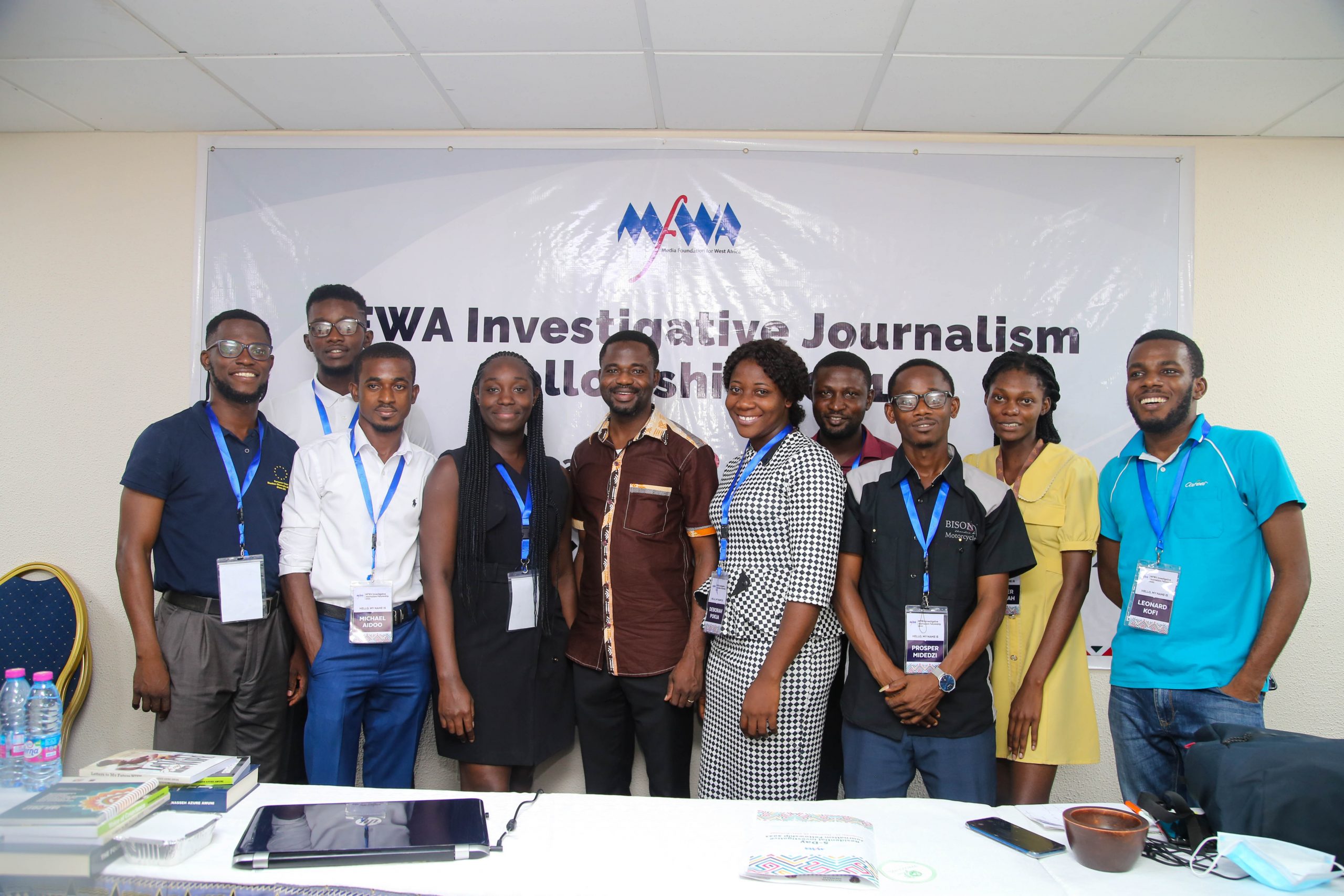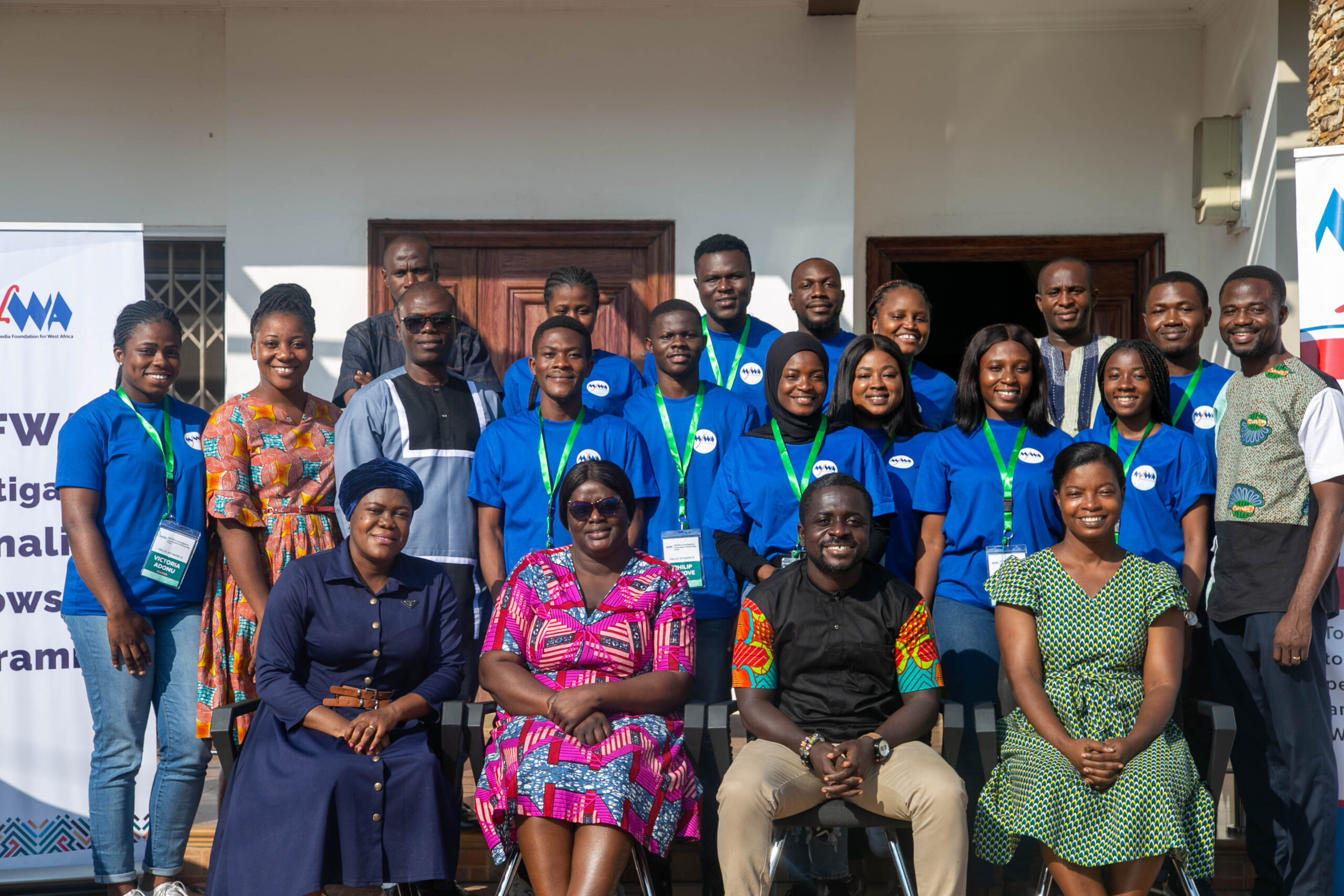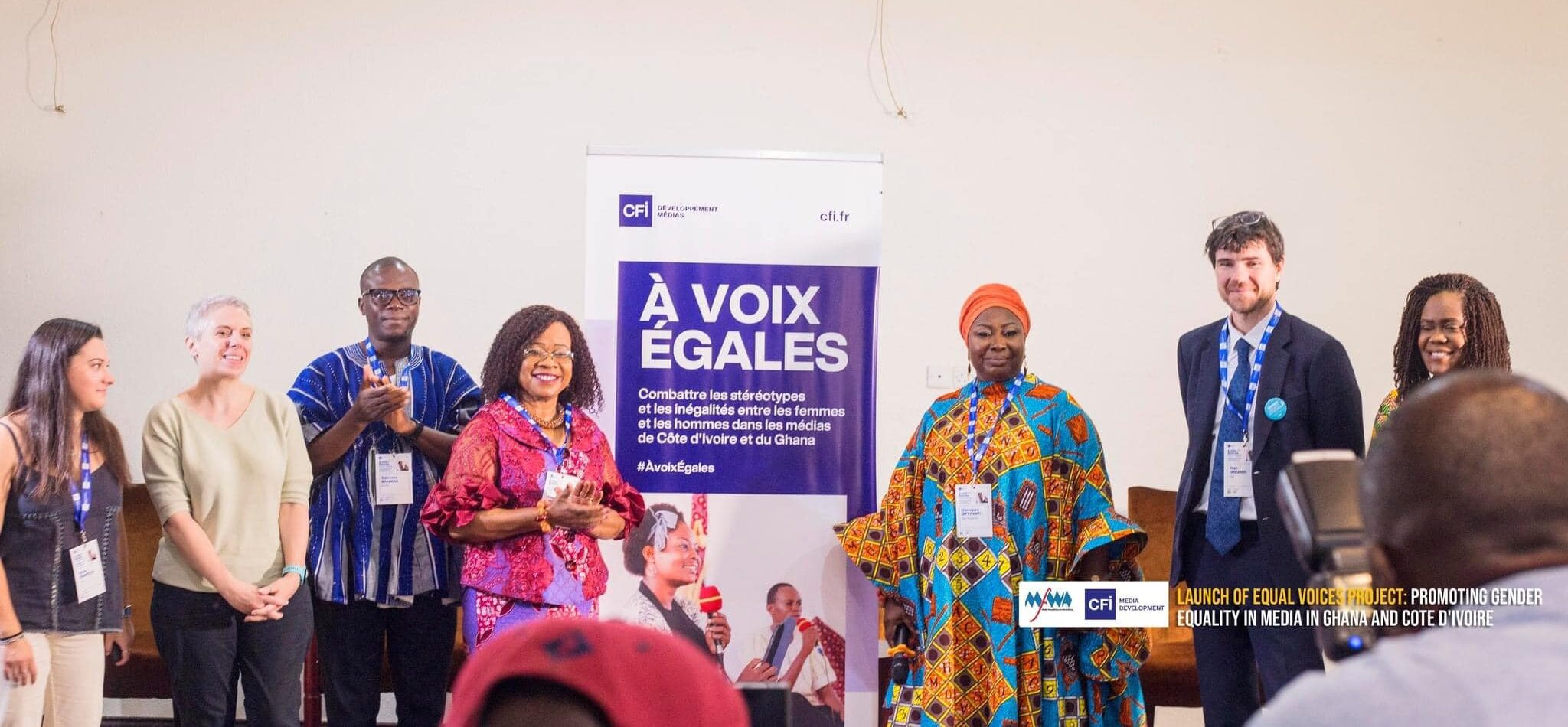“These five days have been very educative and exciting for me. I have gotten the opportunity to learn a lot, I have had an upgrade on my thoughts about investigative journalism as a whole. Most of the videos I have watched and the stories I have read during this training has well informed me on how to prepare documentaries for an investigative piece as well as guide my writing skills for investigative articles”
“All in all, the training has been successful at least to the best of my knowledge. It’s been exciting and the same time insightful. I got the opportunity to learn a lot. I came in with certain expectations at least most of the expectations have been met”
These were the views of two participants of the MFWA Investigative Journalism Fellowship after the end of a five-day bootcamp.
The fellowship is expected to allow participants to learn from the experiences of some of the finest in investigative journalism in West Africa.
With five days shared with his peers and facilitators, Deborah Pokua Bempah, one of the fellows, said her takeaway had been fact-checking and the processes involved in investigative journalism.
“Before the training, I’ve heard of fact-checking but I didn’t know the processes involved. After the training, I got to know what is fact-checkable, the tools or software to use in fact-checking and the essence of fact-checking in journalism. [Truth is] people or public office holders cannot just make any comments and get away with it.
“Again, prior to the training, my perception about investigative journalism was all about going undercover but after the training, it was demystified. I’ve learnt that it can be done through observation and group participation. Lastly, I learnt how to write a report which will engage the audience,” she said.
Another fellow, Josephine Badu Nyarko, shared a similar sentiment and also highlighted the importance of public interest and source cultivation as her key learning points.
“I learnt that deception is not wrong when carrying out an investigative story once the story will be for the greater good of society. Moving on to investigative journalism, I learnt that it is not strictly an undercover approach rather it can be done the overt way that is analysing documents. I also learnt it is important to cultivate sources and have good human relations as the least people you expect to have information about a story may be the richest source of information on the subject matter.”
For Richard Mensah, the proper use of the RTI law to source information and the value of research to investigative journalist stood out for him.
“I learnt how to use the RTI law as a journalist to request information from state agencies. I have also learnt about fact-checking, its relevance in this technological era where mis and disinformation abound such that I can verify truth from falsehoods. Again, I learnt how to cultivate sources, conduct interviews and the need to properly keep documents. Lastly, I learnt how to research both online and offline as an investigative journalist.”
The fellowship is meant to groom young journalists to pursue quality and critical journalism which the Media Foundation for West Africa believes is in a deficit in the Ghanaian media landscape.
By grooming the next generation of investigative journalists, the foundation hopes they will be one of the many antidotes to fighting corruption and ultimately promoting transparency and accountability.
At the first boot camp, the fellows were taken through topics including, fact-checking, reporting and writing the news, investigative journalism, the RTI law and access to information. They also analysed investigative documentaries or print versions of investigative reports, reading and written assignments formed part of the five-day training.
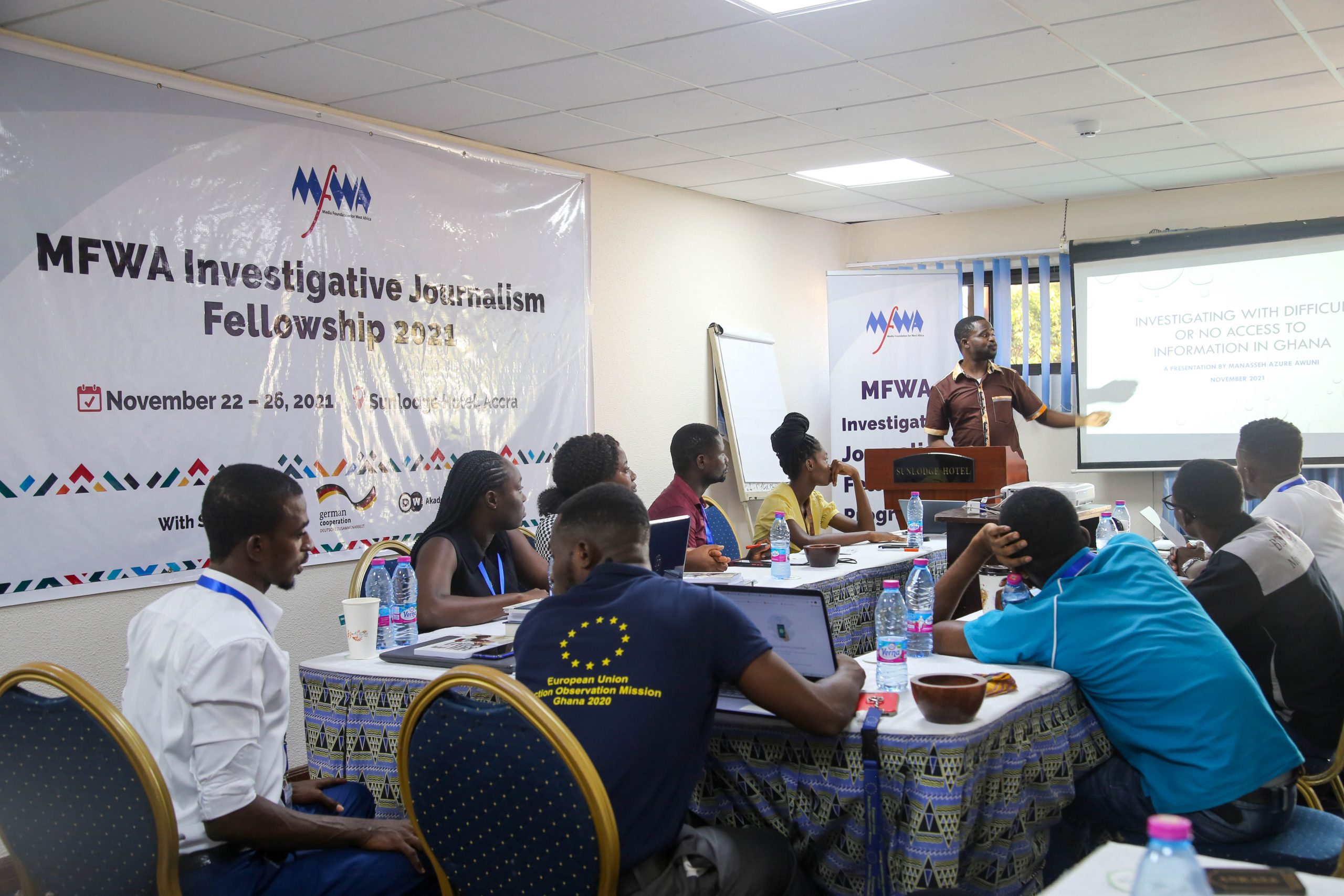
Sharing his thoughts, the Editor-in-chief of The Fourth Estate, Manasseh Azure Awuni, said he was impressed with the output of the fellows.
“I can say at least 70 to 80 per cent of them know what they want. They are quite serious about the fellowship and they have the enthusiasm one needs to undertake investigative reporting. They are showing that enthusiasm through the questions they ask and the kind of contributions they make. I can say I am very impressed so far”.
Kwaku Krobea Asante who facilitated fact-checking during the camp said the fellows responded positively to the exercise with a deep sense of curiosity.
“Their understanding of the issues, their ability to engage on the subject matters are very intriguing ad very promising. It is our hope that we can groom them and produce some of the best that we can have in Ghana, West Africa and the World”.
As part of their training, the Fellows will be working directly under the MFWA’s public interest and accountability journalism project, The Fourth Estate.
They will receive intensive practical training on data journalism, fact-checking and visualization, investigative journalism and basic multi-media and mobile journalism. They will also be taken through how to use the RTI law to access important datasets that can serve as the basis for groundbreaking journalism.
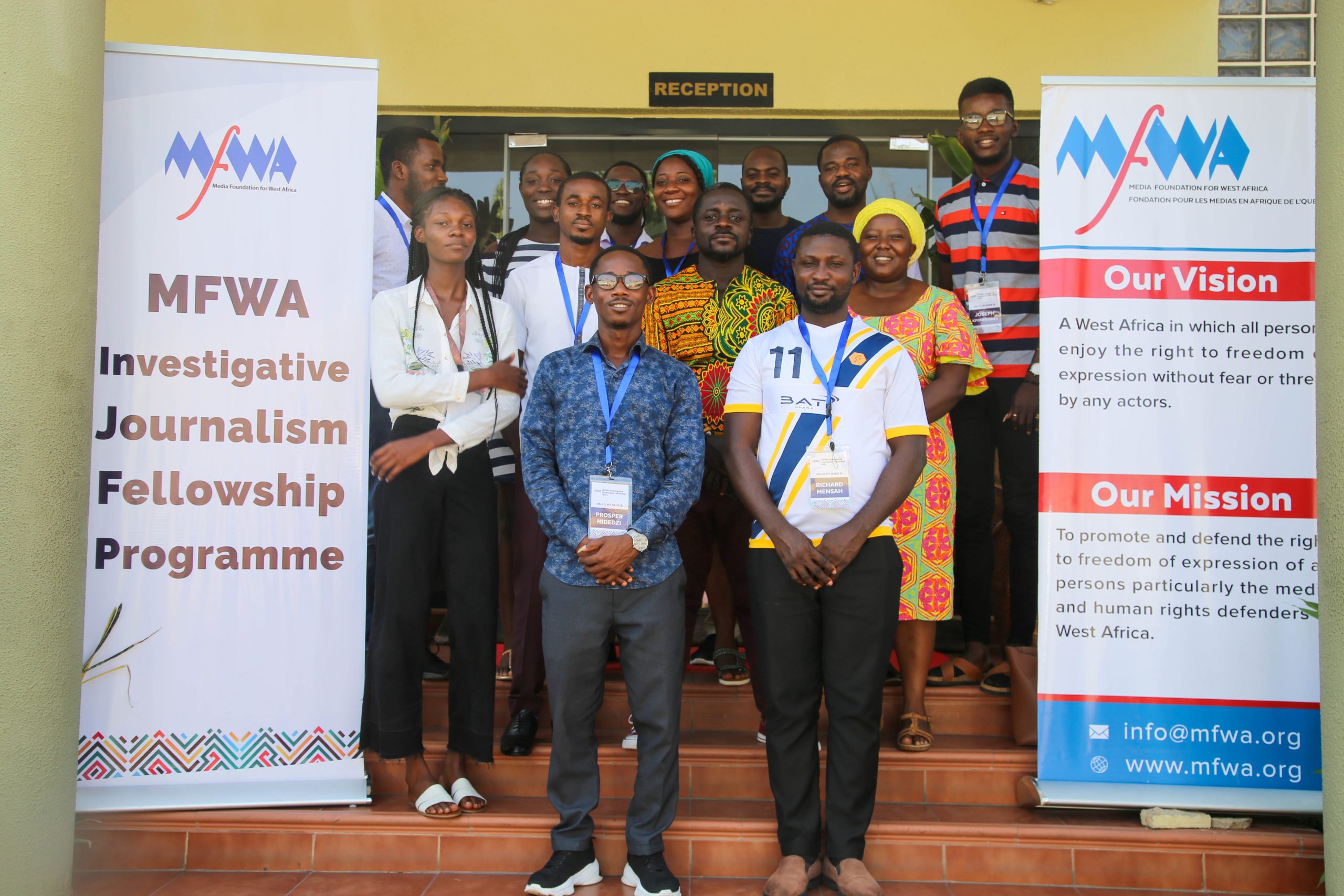
The fellows, who are between the ages of 20 and 33, were selected through a competitive application process including aptitude tests and interviews.
Key Fellowship activities include boot camps, seminars; story writing and fact-checking including fieldwork; Media and Institutional tours; Speaking engagements with high profile industry players and some recreational activities. At the end of the Fellowship, each Fellow is expected to produce at least one significant report. They will also receive a certificate of participation.
The maiden edition of the MFWA’s Journalism fellowship is funded by Deutsche Welle Akademie and is expected to run from October 2021 to March 2022.



